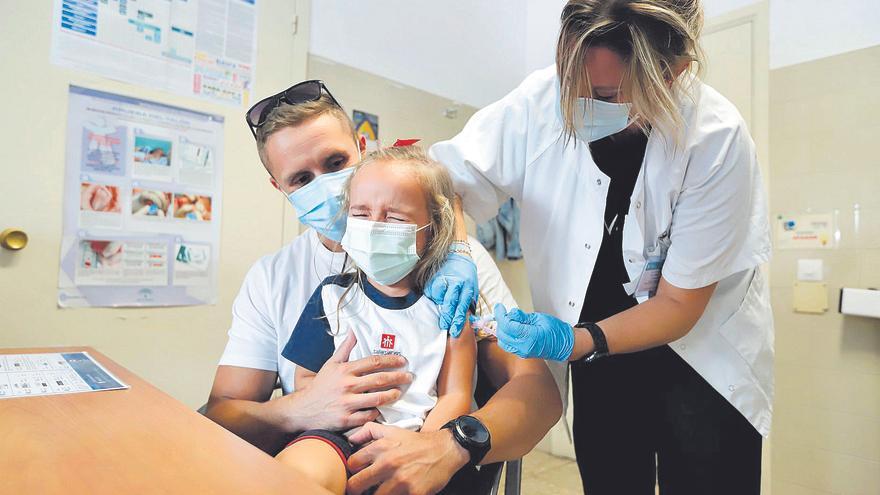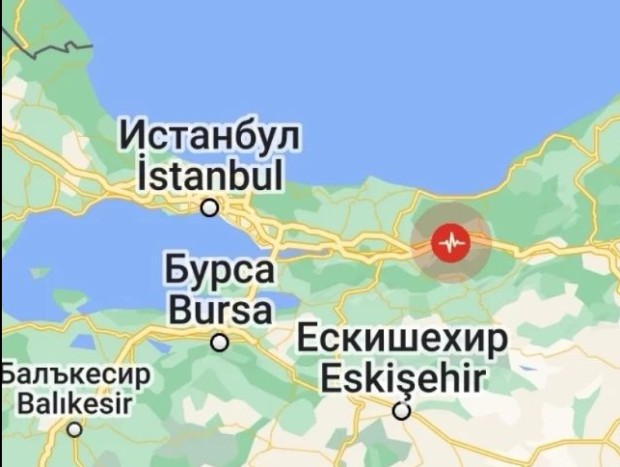Cordoba is found above the Andalusian average in vaccination coverageboth in terms of free vaccination calendarwhich prevents about fifteen serious illnesses and which benefits not only children but also the elderly, such as the reception of evening vs. complaint and the coronavirusaccording to data published by Ministry of Health and Consumption.
The specialist in Preventive Medicine and Public Health of the reina sofia hospital Jose Luis Barrancoalso member of the expert committee of the Andalusia vaccination planpoints out that, thanks to such a large vaccination program and al high percentage of vaccinated children In recent years, the incidence of most of these diseases for which a vaccine is available has drastically decreased. Barranco points out that even some of these diseases, such as measles and polio, no longer occur in the Andalusian community. “The fact that their existence is reduced does not mean that the evolution of these diseases should not continue to be monitored. It will be necessary to continue to promote vaccination, continue to expand the vaccination program and monitor the possible emergence of new diseases», indicates this expert.
flu and covid
“In addition to being proud of the vaccination coverage of children in Córdoba, even the adult population responds positively to immunization”, underlines José Luis Barranco. With data issued by the Council last Friday, Córdoba is the province of Andalusia with highest percentage of people over the age of 60 vaccinated with the second dose of corona virus recallalmost 60%, compared to the Andalusian average of 46.8%. As for the flu, Córdoba ranks this season as the second province in the region with the highest percentage of vaccinated over 65s, 68.1%, behind Jaén (69.3%) and almost 5 points more than the Andalusian average, together with about 30% of children aged 6 to 59 months who had received this vaccine up to November 15, a percentage that will surely have risen in the last two weeks.
In the face of covid, Córdoba is itself the Andalusian province with the largest population that has both dosesthe 90.6% of the total, even if this percentage drops to 59% in the case of children aged between 5 and 11, who were the last to be able to benefit from this measure. Almost 60% of the total population has the three doses of covid on.
Secondly, Córdoba also stands out regionally compared to the number of children receiving the vaccines included in the free calendar In Andalusia. Data from the Ministry of Health show that 97% of Cordoba’s children receive the vaccine hexavalent and pneumococcus; 99.2%, that of meningitis b; 98.3%, the one that protects ACWY meningitis; 97.1%, the triple viral; 98.9%, that of chicken pox; Those of the tetanus-diphtheria, poliomyelitis and pertussis, 90.2%; the VHP, against the papilloma virus, aged 12 to 18, 93%; the ACWY meningitis 12 years, 93.1%; the one of tetanus-diphtheria at 14 years, 95.8%, while that of pneumococcus thirteen in people between 60 and 71 years, 74.8%.
José Luis Barranco points out that, despite the fact that during the beginning of the pandemic, the vaccination coverage of the Andalusian calendar could decrease due to the existing restrictions, subsequently the vaccination rate was recovered with several campaigns, “so that we are already in a pre-covid situation”.
Rotavirus, pay again
The novelty in the Andalusian free vaccination calendar is that from 1 January next year all males born in 2011, who they turn 12 in 2023, they can be vaccinated against human papillomavirus, a vaccine so far indicated only for girls. With this new extension, at the moment the only vaccine that continues to be paid for by children in Andalusia is the one against rotavirus, which prevents severe diarrhea, especially in early childhood. Andalusian public health pays for rotavirus vaccine born before 32 weeks of gestation.
José Luis Barranco adds that specialists in Preventive Medicine and Public Health, Epidemiology, Pediatrics and medicine in general are committed to the existence of a single vaccination program throughout Spain and not several, so that there are no regions where children receive more vaccines than others.
protect the elderly
Currently, the concept of vaccination in the free public health calendar covers all stages of life, not just the pediatric age, underlines the prevention specialist of the Reina Sofía hospital, José Luis Barranco. “The immunosenescence (deterioration of the immune system due to aging) makes it necessary incorporate vaccinations in the elderly to deal with certain pathologies”, he specifies.
The Andalusian health system has some vaccines in adulthoodsuch as, for example, the one that protects against herpes zoster virusShingles is a disease caused by varicella zoster virus reactivationwhich has a low mortality, but its complications can be a big problem, especially in very immunosuppressed people, which is why vaccination against this virus is approved in people over 18 who have received a hematopoietic transplant and wants to expand to malignant blood diseases, solid organ transplantation, solid tumors with chemotherapy, HIV infection, among other specific cases. Public health experts estimate it would recommendable agree on the administration of this vaccine also to people over 65 years of age.
In this line of improve vaccination in adulthoodgiven the increased life expectancy, vaccination was introduced years ago against pneumococcus for the population aged between 60 and 71 years and progress is expected in monoclonal antibodies and vaccines against covid or meningitis, as well as against RSV in children.
What reasons are given for not vaccinating a child?
Doctor José Luis Barranco points out that in Córdoba the percentage of unvaccinated children of the calendar is very reduced. The reasons that can lead a family not to vaccinate their children can be due to simple forgetfulness or lack of control on the doses they should receive, especially with regard to vaccines that are administered in adolescence. To avoid this, from health centers it does active and reported absorption on the importance of vaccination. Barranco adds it there may also be parents, even if they are very fewwhat they do not perceive the risk of not getting vaccinated to their children and they let themselves be guided by hoaxes about the unsubstantiated negative effects of vaccines.


